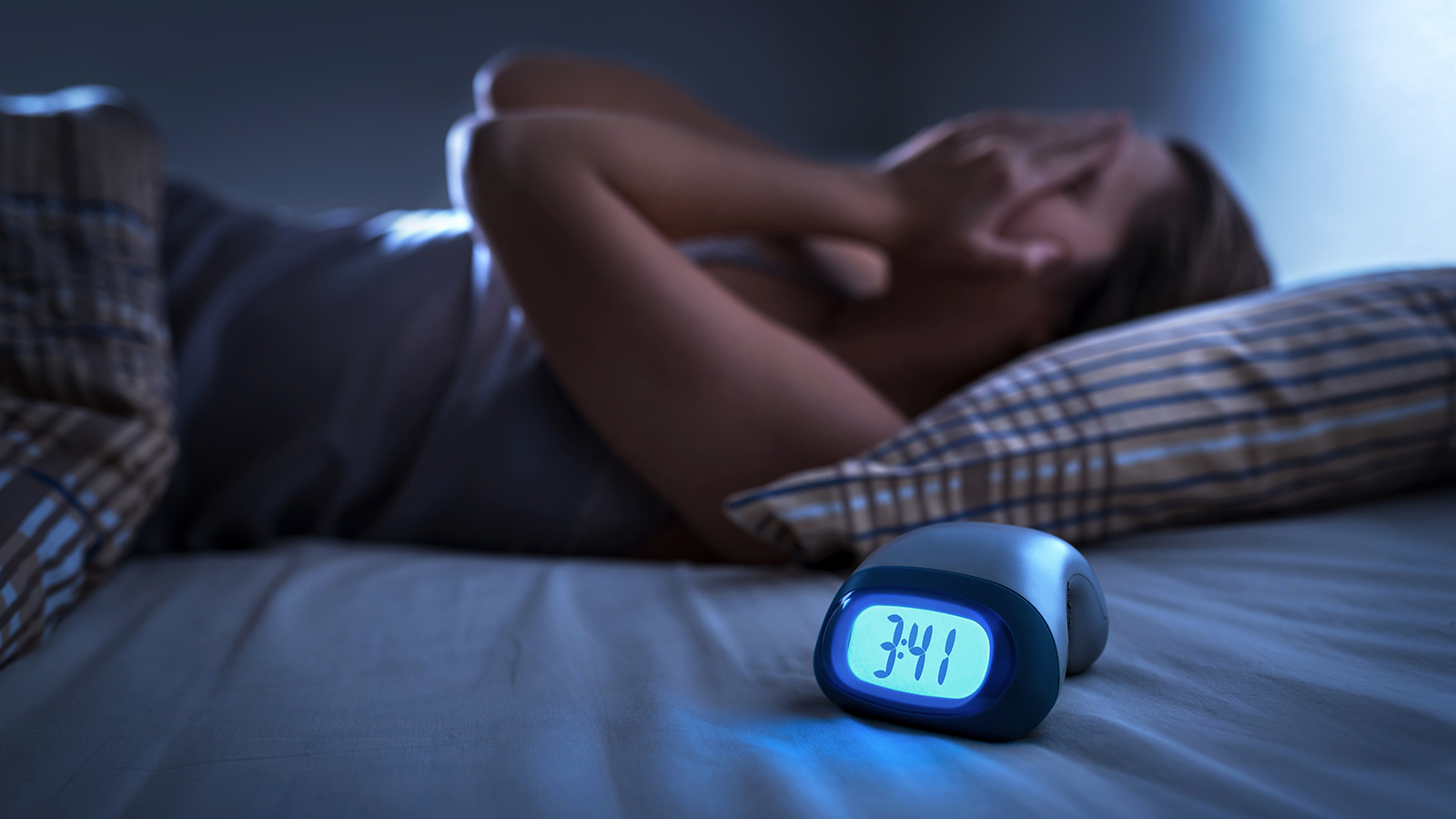From Tossing to Resting: A Journey Through Insomnia

Strong 8k brings an ultra-HD IPTV experience to your living room and your pocket.
For millions of people worldwide, sleep doesn’t come easy. Instead of resting peacefully, they find themselves tossing and turning, unable to quiet the mind and settle into a restful slumber. Insomnia, the inability to fall or stay asleep, affects both physical and mental well-being, creating a cycle of frustration and fatigue. In this post, we’ll explore the nuances of insomnia, what causes it, and most importantly, how to find a path from tossing and turning to restful sleep.
What is Insomnia?
Insomnia is more than just the occasional sleepless night. It's a persistent condition that disrupts the body's natural sleep-wake cycle. People with insomnia may have trouble falling asleep, staying asleep, or waking up too early and not being able to fall back asleep. This can lead to daytime fatigue, irritability, and difficulty concentrating, among other issues.
There are two main types of insomnia:
Acute Insomnia: This type of insomnia is short-term, often triggered by stress, trauma, or changes in routine.
Chronic Insomnia: If insomnia persists for at least three times a week over the course of three months or more, it is considered chronic.
Regardless of its type, insomnia has one thing in common: it can feel debilitating. The good news is, there are several treatment options available to help those suffering from insomnia, from lifestyle changes to medications.
Understanding the Causes of Insomnia
Before diving into treatments, it’s essential to understand the common causes of insomnia. Often, it’s a combination of factors rather than a single cause. Some of the most common culprits include:
Stress and Anxiety
One of the most frequent contributors to insomnia is stress. Whether it's work-related, financial issues, or personal struggles, stress can keep your mind racing and make it difficult to fall asleep. Anxiety also plays a role—worrying about not getting enough sleep can ironically keep you from getting any rest at all.
Poor Sleep Habits
Bad sleep hygiene is another significant factor in insomnia. This includes irregular sleep schedules, excessive screen time before bed, and an uncomfortable sleep environment. Your body needs a consistent routine and an environment conducive to rest in order to feel truly relaxed at bedtime.
Medical Conditions
Certain medical conditions can interfere with sleep. For example, chronic pain, asthma, acid reflux, and even conditions like depression and anxiety disorders can make it harder to get a good night’s sleep.
Medications and Substances
Some medications, including those used for high blood pressure, asthma, and depression, can cause insomnia as a side effect. Likewise, caffeine, alcohol, and nicotine are known to disrupt sleep patterns and should be avoided, especially in the hours leading up to bedtime.
Hormonal Changes
Hormonal fluctuations, especially during menopause or pregnancy, can lead to disruptions in sleep. Women in particular are more likely to experience insomnia during these stages of life due to changes in estrogen and progesterone levels.
The Impact of Insomnia
The effects of insomnia go beyond just feeling tired the next day. When you don’t get enough rest, your body’s systems don’t function optimally. Here are just a few of the impacts insomnia can have:
Physical Health
Chronic insomnia can put you at risk for developing serious health conditions, including cardiovascular disease, obesity, and diabetes. Sleep plays an essential role in the body’s ability to repair and restore itself, and without sufficient rest, your immune system becomes compromised.
Mental Health
Sleep deprivation can exacerbate mental health conditions like anxiety and depression. It can also affect your mood, making you more irritable and prone to stress. In fact, insomnia and mental health issues are often closely linked, with each contributing to the other in a cyclical pattern.
Decreased Cognitive Function
Lack of sleep leads to a decrease in cognitive function. You may experience difficulty concentrating, memory problems, and slower reaction times. These issues can affect your productivity at work or school and can even increase the risk of accidents.
Natural Remedies for Insomnia
While insomnia may seem like an overwhelming challenge, there are several natural remedies you can try before turning to medication. These methods can help you reset your sleep habits and improve the quality of your sleep.
Create a Sleep Schedule
Establishing a consistent sleep schedule is one of the most effective ways to combat insomnia. Go to bed and wake up at the same time every day, even on weekends. This helps regulate your body’s internal clock and reinforces the connection between your bed and sleep.
Improve Sleep Environment
Make sure your bedroom is conducive to sleep. This means eliminating any distractions (like bright lights or loud noises), ensuring your mattress is comfortable, and keeping the room at a cool, comfortable temperature. Consider using blackout curtains or white noise machines if needed.
Limit Stimulants
Cut back on caffeine, nicotine, and alcohol, particularly in the hours leading up to bedtime. These substances can disrupt your sleep cycle and make it harder to fall asleep.
Practice Relaxation Techniques
Engage in relaxation practices like deep breathing, meditation, or yoga before bed. These techniques can help calm your mind and prepare your body for rest. Progressive muscle relaxation, where you tense and then relax each muscle group, is another excellent strategy for reducing stress and promoting sleep.
When to Turn to Insomnia Medication
If you’ve tried natural remedies and still struggle with insomnia, you may want to consider insomnia medication. While lifestyle changes and therapy should always be the first line of defense, medications can be helpful in the short term, especially if you need relief from acute insomnia.
Types of Insomnia Medication
There are several types of insomnia medications available, including both prescription and over-the-counter options. Some common types include:
Sedative-Hypnotics: These are the most commonly prescribed medications for insomnia. They work by enhancing the effects of neurotransmitters that promote sleep. Popular examples include zolpidem (Ambien) and eszopiclone (Lunesta).
Melatonin Receptor Agonists: Medications like ramelteon (Rozerem) work by stimulating melatonin receptors in the brain to help regulate your sleep-wake cycle.
Antidepressants: Some antidepressants, such as trazodone, are used off-label to treat insomnia due to their sedating effects.
Over-the-Counter Medications: OTC medications such as diphenhydramine (Benadryl) can also help with sleep, but they should be used with caution as they may cause drowsiness the next day and are not ideal for long-term use.
Best Insomnia Medication for Long-Term Relief
While insomnia medications can provide short-term relief, they aren’t typically a long-term solution. For chronic insomnia, therapy such as Cognitive Behavioral Therapy for Insomnia (CBT-I) may be more effective in the long run. This approach helps address the underlying causes of insomnia, such as negative thought patterns and poor sleep habits.
If you’re considering medication, consult with a healthcare provider who can guide you toward the best insomnia medication for your specific needs. It’s essential to weigh the benefits and risks before using any medication, particularly in the long term.
Conclusion
From tossing to resting, the journey through insomnia can be difficult, but it’s not without hope. Whether you’re dealing with acute stress or long-term insomnia, there are steps you can take to improve your sleep. From practicing good sleep hygiene to considering insomnia medication, you don’t have to struggle in silence. By seeking professional guidance and incorporating healthy habits, you can take control of your sleep and improve your overall well-being.
Don’t let insomnia rob you of the restorative rest your body needs. Whether through natural remedies or medications, there’s a solution out there waiting to help you transition from tossing and turning to peaceful, rejuvenating rest.
Note: IndiBlogHub features both user-submitted and editorial content. We do not verify third-party contributions. Read our Disclaimer and Privacy Policyfor details.



